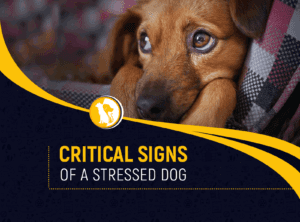
Introduction:
Losing a beloved pet is an emotionally challenging experience, and many pet owners may wonder if their dogs exhibit behaviors suggesting a form of saying goodbye before they pass away. While it’s difficult to ascertain whether dogs truly say goodbye in a human sense, there are instances where pet owners have observed certain behaviors in their dogs that might be interpreted as farewell gestures.
Observations and Anecdotal Experiences:
Throughout history, pet owners have shared anecdotal experiences of observing changes in their dogs’ behavior before their passing. These observations often include:
- Increased Affection: Some dogs become notably more affectionate, seeking increased physical contact and closeness with their owners. They may snuggle more, stay close, or seek comfort in their owner’s presence.
- Withdrawal: On the other hand, some dogs might display a tendency to withdraw or isolate themselves. They might seek solitude or prefer to spend time alone, distancing themselves from usual activities or interactions.
- Changes in Routine: Dogs are creatures of habit, and a significant change in their routine could indicate something is amiss. Some dogs might stop eating, drinking, or engaging in activities they previously enjoyed.
- Heightened Awareness: There are anecdotes of dogs displaying a heightened sense of awareness or vigilance, seemingly attentive to their surroundings or their owner’s emotions.
- Unusual Vocalizations or Behavior: Some pet owners have reported hearing their dogs vocalize differently or act in unusual ways before their passing, which they interpret as attempts to communicate something.
Interpreting Behaviors:
Interpreting these behaviors as a form of saying goodbye is subjective and open to individual interpretation. Dogs, like humans, can experience illness, pain, or discomfort, leading to changes in behavior that may be unrelated to a conscious “goodbye.” Dogs might also be responding to subtle changes in their owner’s emotions or routines, which can influence their behavior.
Understanding Canine Communication:
While dogs communicate through body language, vocalizations, and behavioral cues, their ability to express complex emotions or convey a farewell in a human-like manner remains uncertain. Dogs lack the cognitive ability to comprehend death in the same way humans do, and their behaviors are often instinctual or influenced by their immediate surroundings.
The Role of Bond and Attachment:
The deep bond between humans and their dogs often leads to strong emotional connections and attachments. Pet owners may perceive certain behaviors as their dog’s way of expressing love, seeking comfort, or responding to the emotional atmosphere in the household.
Coping with Pet Loss:
Regardless of whether dogs consciously say goodbye, coping with the loss of a pet can be an emotionally challenging journey. Honoring the memories of a cherished pet and finding solace in the love and companionship they provided is essential in the grieving process.
Understanding a Dog’s Health Decline:
As dogs age or face health issues, their behaviors and physical conditions may change. These changes can often be mistaken as signs of saying goodbye. Dogs, like any living beings, can exhibit various symptoms indicating a decline in health:
- Loss of Appetite: A decreased interest in food can signal various health problems. While it might not explicitly signify saying goodbye, it can indicate an underlying health issue that needs attention.
- Lethargy and Weakness: Dogs may become less energetic or display weakness due to various health conditions, including age-related ailments, pain, or chronic diseases.
- Changes in Grooming Habits: Dogs might neglect grooming themselves if they are feeling unwell. This can lead to changes in their appearance, such as a lack of grooming leading to a dull coat.
- Difficulty Breathing or Pain: Labored breathing or signs of pain, like whining or restlessness, might indicate a health problem that requires immediate veterinary attention.
- Changes in Toilet Habits: Alterations in urination or defecation patterns might indicate underlying health issues.
Supporting a Dog in Their Final Days:
When a dog shows signs of declining health, it’s essential to provide them with comfort, love, and support:
- Veterinary Care: Consulting a veterinarian is crucial to evaluate your dog’s health and provide appropriate medical care. Veterinarians can guide you on managing pain, providing palliative care, or making end-of-life decisions.
- Comfort and Companionship: Spending quality time with your pet, offering gentle affection, and maintaining a comfortable environment can alleviate their stress and provide solace.
- Pain Management: Ensuring your pet is comfortable and pain-free is paramount. Follow your vet’s advice on pain management to enhance your pet’s quality of life.
- Quality Nutrition and Hydration: Providing nutritious food and access to water is crucial for a pet’s well-being. Some dogs might need specialized diets during their final days.
- Emotional Support: Recognize the emotional toll it takes on pet owners during this challenging time. Seek support from friends, family, or support groups to cope with the impending loss.
Coping with Pet Loss:
Losing a pet is a profound emotional experience, and grieving is a natural process. It’s essential to acknowledge and process these emotions:
- Allow Yourself to Grieve: Grieving is a personal experience, and it’s okay to feel sadness, anger, or confusion. Allow yourself the time and space to mourn the loss of your beloved companion.
- Remember the Good Times: Celebrate the cherished memories you shared with your pet. Reflect on the love, joy, and happiness they brought into your life.
- Seek Support: Surround yourself with understanding friends, family, or professionals who can provide comfort and support during this difficult time.
- Memorialize Your Pet: Create a memorial or tribute to honor your pet’s memory. This might include creating a photo album, planting a tree, or making a donation in their name.
Conclusion:
The question of whether dogs say goodbye before they die remains a matter of personal interpretation based on anecdotal experiences. While some pet owners may have observed behaviors in their dogs that they interpret as farewell gestures, the topic lacks empirical evidence or scientific validation. Understanding canine behavior, interpreting their actions, and coping with pet loss involves acknowledging the emotional bond shared with a beloved pet and finding comfort in the memories and love they leave behind.



